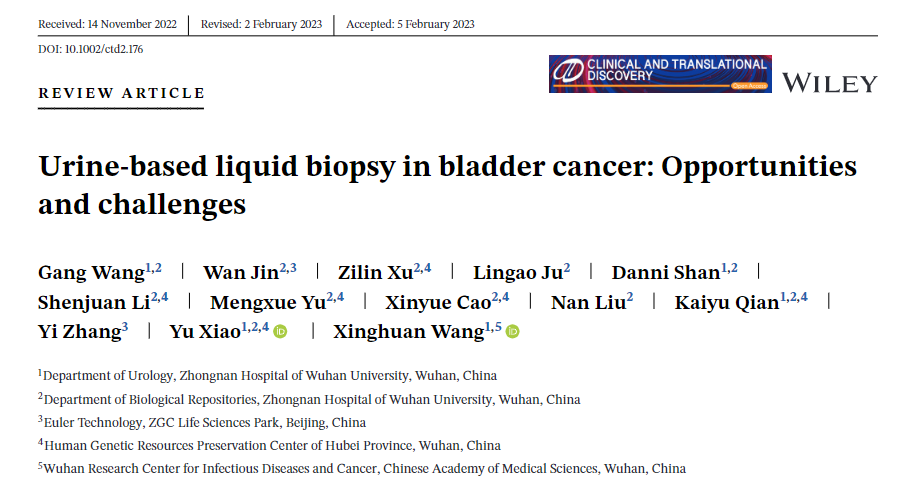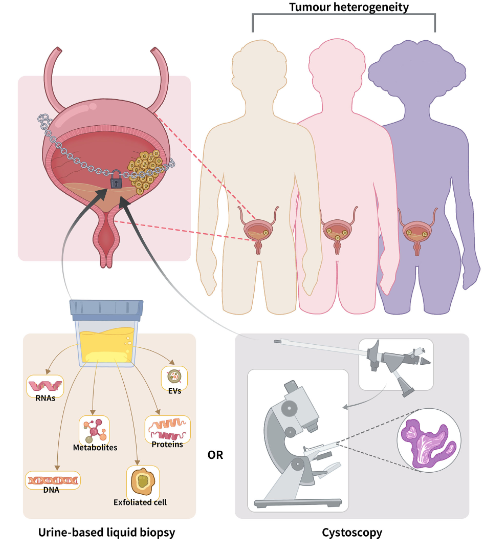

Recently, Professor Wang Xinghuan's team from Zhongnan Hospital of Wuhan University was invited by journal Clinical and Translational Discovery to write a review titled "Urine based liquid biopsy in blade cancer: opportunities and challenges"[1]. This review systematically summarized the research progress of liquid phase biopsy based on urine bladder cancer, discussed many challenges faced in this field, and looked forward to the future development of this field.

Bladder cancer is a common tumor in the urinary system, which is easy to recur and needs long-term follow-up. At present, the gold standard for diagnosis and monitoring of bladder cancer is still cystoscopy, but this method is somewhat invasive. In addition to possible complications such as infection, bleeding, and injury, its diagnostic accuracy is also closely related to the operator's experience and the judgment of the pathologist, and it is easy to miss the diagnosis of carcinoma in-situ.
Liquid biopsy is a non-invasive detection used to analyze biomarkers in body fluids. In recent years, it has attracted much attention due to its enormous potential in tumor diagnosis and monitoring. Urine is considered to be the most ideal liquid phase biopsy sample for bladder cancer, because of its advantages such as easy collection, repeatable collection, completely non-invasive collection process, and direct contact with bladder tumors, rich in shed cells, proteins, cfDNA, cfRNA, extracellular vesicles (EVs), metabolites and other biomarkers.

This article systematically reviewed the research reports on urine based liquid phase biopsy of bladder cancer in recent years from four aspects: early diagnosis, classification and risk prediction, residual and recurrence monitoring, and efficacy monitoring. The various studies were classified and analyzed according to the types of biomarkers, and the advantages and disadvantages of various types of biomarkers were discussed. At the same time, this paper presents a number of urgent issues in bladder cancer uro-based liquid biopsy studies, such as whether biomarker screening excludes interference from non-tumor origin markers, whether the selection of the study population in the validation phase is appropriate, and the lack of standard procedures for urine collection and storage. In addition, the review looks forward to the future development direction and research trends of uro-based liquid biopsy research, emphasizing the importance of biobanks with standardized sample collection and management procedures in liquid biopsy research.
References:
[1] Wang, G, Jin, W, Xu, Z, et al. Urine-based liquid biopsy in bladder cancer: Opportunities and challenges. Clin Transl Disc. 2023; 3:e176. https://doi.org/10.1002/ctd2.176
Links:
https://onlinelibrary.wiley.com/doi/10.1002/ctd2.176